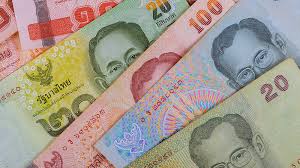Traveling to Thailand is an exciting experience for any globetrotter. Among the many things to plan, understanding currency exchange is critical. If you’ve ever wondered how much 100 dollar thai baht could get you or how to maximize its value, this article has you covered. From exchange rate tips to spending strategies, we’ll guide you through the essentials to make the most of your Thai adventure.
Understanding the Currency Exchange Basics
The Thai Baht (฿) is the official currency of Thailand. Its symbol is “฿,” and the international code is THB. If you’re holding 100 dollars, the first step is understanding the conversion rate. Exchange rates fluctuate daily based on global markets, so it’s vital to check current rates before exchanging.
For instance, if the exchange rate is 1 USD = 35 THB, then 100 dollars will get you 3,500 Thai Baht. Some factors that influence exchange rates include:
- Global economic conditions
- Thailand’s tourism season
- Inflation rates in the U.S. and Thailand
Where to Exchange Your 100 Dollars for Thai Baht
- Airports
- Pros: Convenient, especially for immediate needs upon arrival.
- Cons: Higher fees and lower exchange rates compared to other options.
- Local Banks in Thailand
- Banks like Bangkok Bank and Siam Commercial Bank offer fair rates.
- Tip: Bring your passport for identification when exchanging.
- Exchange Kiosks
- Popular kiosks like SuperRich and TT Exchange are well-known for offering competitive rates.
- Look for the “green” or “orange” kiosks.
- ATMs
- Withdrawing cash directly using an international debit card often provides a good rate.
- Warning: Thai ATMs may charge withdrawal fees (150–220 THB per transaction).
Tips for Maximizing the Value of Your 100 Dollar Thai Baht Exchange
- Compare Rates Online
Before heading out, research exchange rates online. Websites like XE or OANDA provide up-to-date information. - Avoid Airport Exchanges for Large Amounts
Exchange only small amounts at the airport to cover immediate expenses like transportation. - Use Credit Cards for Big Purchases
Hotels, restaurants, and shops in tourist areas often accept international credit cards, offering a competitive conversion rate without the hassle of cash exchange.
What Can You Do with 100 Dollar Thai Baht in Thailand?
Once you have your Thai Baht in hand, you might wonder how far it will stretch. Thailand is known for its affordability, and 3,500 THB (based on an average rate) can go a long way. Here’s a breakdown of what you can do:
- Accommodation
- Budget hotel: 500–1,000 THB per night
- Mid-range boutique hotel: 1,500–2,500 THB per night
- Food and Drinks
- Street food meal: 40–100 THB
- Mid-range restaurant meal: 200–500 THB
- Local beer: 60–100 THB per bottle
- Transportation
- BTS Skytrain ride: 15–60 THB
- Tuk-tuk ride: 100–200 THB (short distances)
- Grab rides (Thai Uber): 100–300 THB depending on distance
- Attractions
- Temple entry fees: 50–200 THB
- Thai massage: 200–500 THB per hour
- Day tours: 1,000–2,500 THB
The Best Time to Exchange Your 100 Dollars into Thai Baht
Timing is everything when it comes to currency exchange. To get the best value for your 100 dollars:
- Avoid peak tourist seasons when demand for Thai Baht is high.
- Monitor exchange rates for a favorable spike.
- Exchange before traveling if rates are significantly better in your home country.
Spending 100 Dollar Thai Baht: A Traveler’s Budget
Here’s how a budget traveler might spend their 3,500 THB:
| Expense | Approximate Cost |
|---|---|
| Street Food Meals (3 days) | 900 THB |
| Budget Hotel (2 nights) | 1,000 THB |
| Transportation (local rides) | 300 THB |
| Entry Fees for Attractions | 500 THB |
| Souvenirs and Shopping | 800 THB |
With careful planning, 100 dollars can comfortably cover 2–3 days of budget travel in Thailand.
Tips for Managing Your Thai Baht Wisely
- Break Large Notes
Vendors at markets may struggle to provide change for 1,000 THB notes. Use smaller denominations for convenience. - Keep Emergency Cash
Always have an extra 1,000–2,000 THB for unforeseen expenses like medical needs or unexpected transportation costs. - Use Local Payment Apps
If you’re staying longer, consider apps like PromptPay for seamless transactions.
Common Mistakes to Avoid When Exchanging Currency
- Ignoring Fees
Some services advertise zero commission but apply hidden fees. - Exchanging All Your Money at Once
Exchange small amounts and monitor rates for better deals. - Not Informing Your Bank
Notify your bank before traveling to avoid card transaction blocks.
Conclusion
Whether you’re exchanging your 100 dollars into Thai Baht for a quick getaway or a long vacation, understanding the basics of currency conversion can save you both time and money. With competitive exchange options, strategic spending, and mindful planning, your 100 USD can unlock incredible experiences in the Land of Smiles.
Are you ready to make the most of your 100 dollar Thai Baht and explore the wonders of Thailand?
